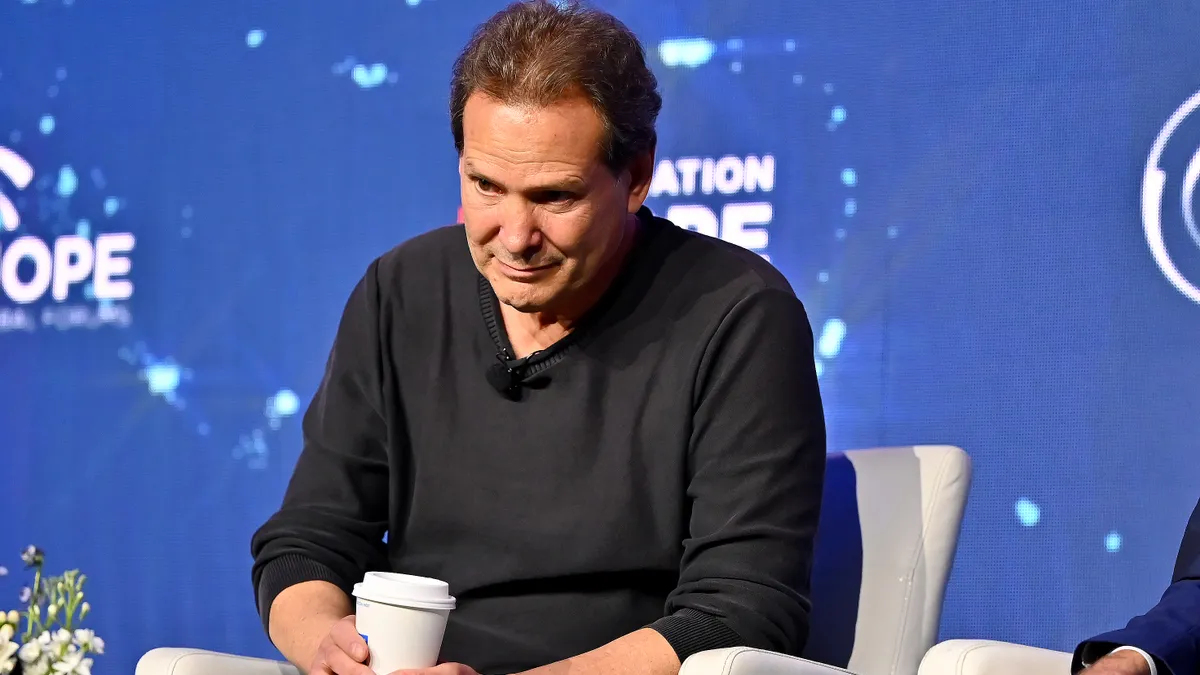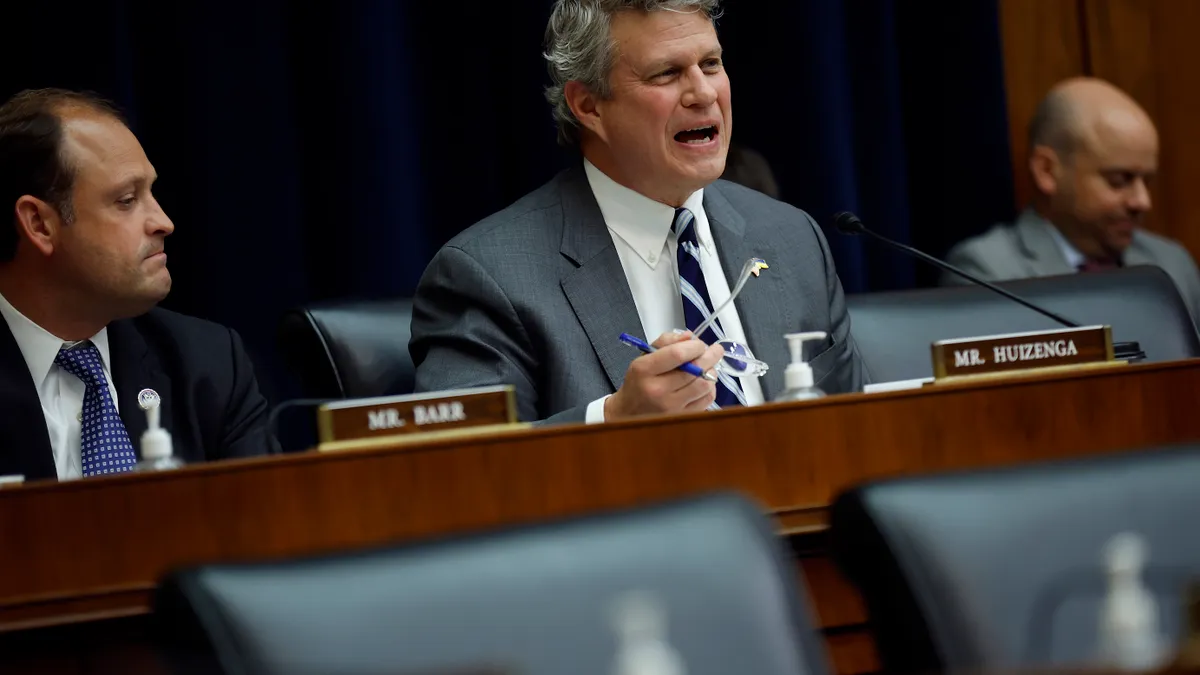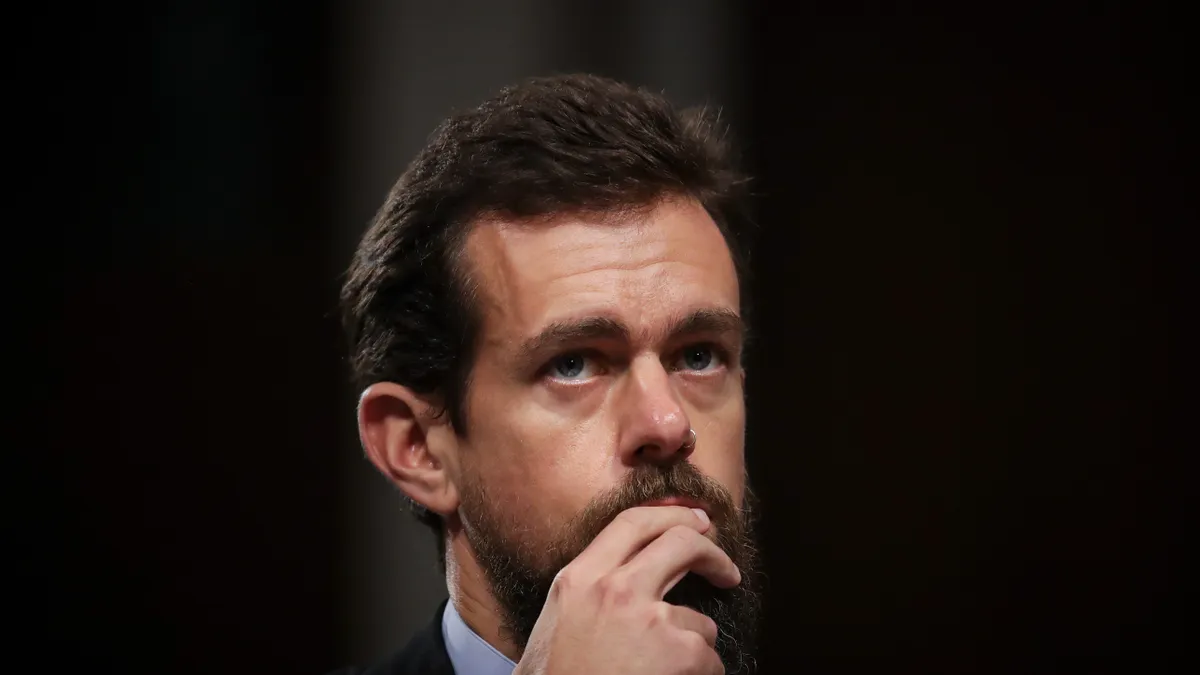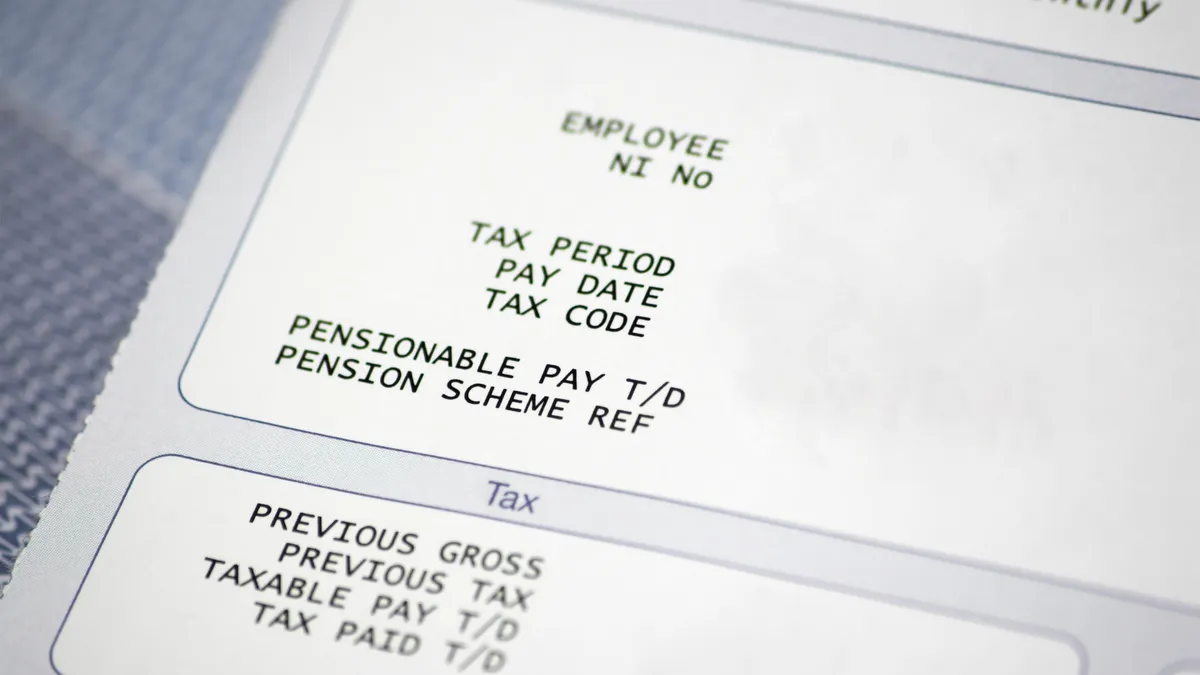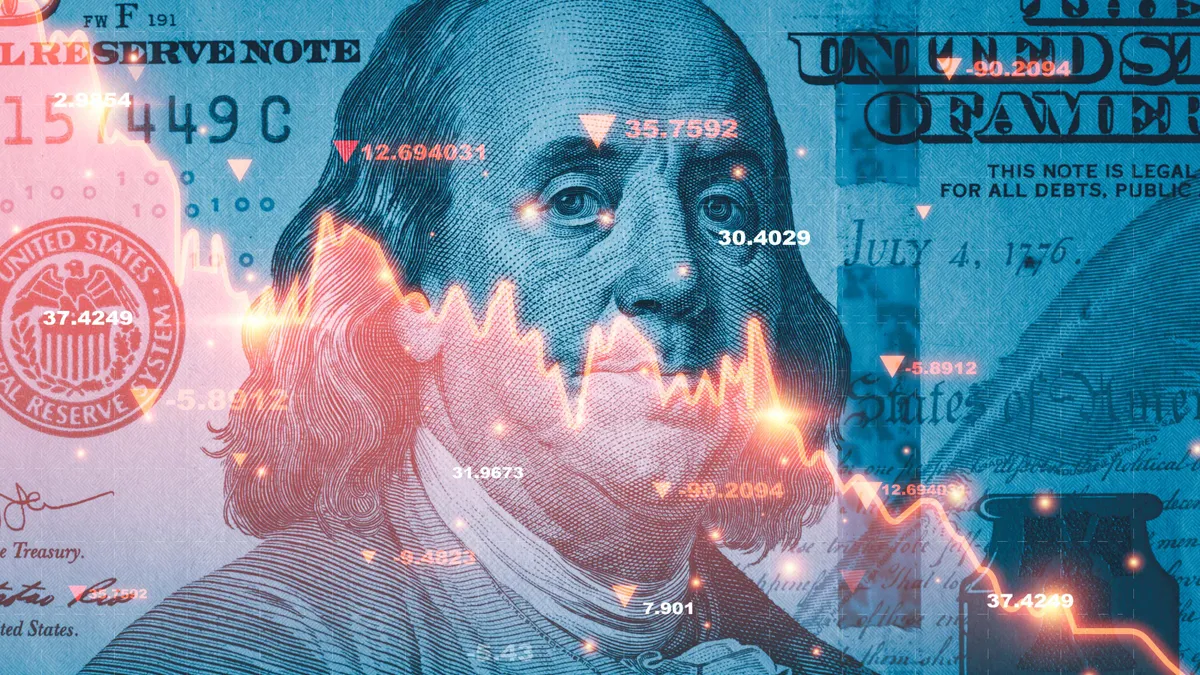PayPal has planned for months to name a new CEO to replace Dan Schulman before yearend. Now, the digital payments pioneer is coming under pressure to speed up the transition.
“Some investors are getting frustrated with what they believe is a lack of urgency on the CEO search,” according to a Monday note from the independent research firm Wolfe Research sent to its investment clients.
The San Jose, California-based company said in early February that Schulman, 65, planned to retire by the end of the year, though he noted at the same time that he was willing to stay longer if the board asked.
With the growth of PayPal’s flagship checkout product stalling in recent years and the stock slumping after the most recent earnings report this month, some investors aren’t interested in taking him up on the offer.
They were underwhelmed by the company’s recent disclosures on the progress being made by the board in naming his successor, according to the Wolfe report. A spokesperson for PayPal didn’t immediately respond to a request for comment on the investor sentiment.
CEO search progress?
During the company’s first-quarter earnings conference call with analysts last week, Schulman said that the board had appointed a subcommittee and hired a search firm to assess external and internal candidates. “We still plan to announce my replacement before yearend and the process is well underway,” he said.
But that fell short of some investors’ expectations. “A CEO replacement needs to happen more quickly,” Wolfe analysts said in the unusual note they called “an open letter to the board.” “Investors are unsure of what they're buying into until a new CEO is in place to set the strategy.”
It’s “odd” that a high-profile company like PayPal hasn’t found a successor for Schulman yet, said Josh Crist, who is co-managing partner at the Chicago search firm Crist Kolder. He also finds it strange that the outgoing CEO would hang around for months. At most, it should take a company like PayPal about six months to find a replacement, he said. “That length is different, no question,” he said.
The absence of a CEO is also likely hampering PayPal’s ability to land a permanent chief financial officer because that person will need to know who the CEO is, Crist said. PayPal has appointed Gabrielle Rabinovitch to an interim position multiple times over the past year. “There are plenty of candidates for these roles,” Crist said.
With the company being “coy” about the succession plan, Crist wonders if something else, like a business transaction, could be in the offing. “It says to me that something else is going on,” he said.
Elliott Management influence
There is one key investor weighing in at PayPal these days. The activist shareholder Elliott Investment Management took a $2 billion ownership stake in the company last year and has helped set new priorities for PayPal.
The company targeted $900 million in expense savings last year after Elliott’s investment and planned for an additional savings of $1.3 billion this year. Schulman also noted last August that PayPal would focus on building up its Braintree online and mobile payments services that cater to customers such as food delivery company GrubHub and ride-hailing firm Uber. Formerly, PayPal had also been trying to build up its digital wallet.
The expansion of the lower-margin, non-branded Braintree business may be seen as a detriment by some investors who are more concerned about boosting the growth of the namesake checkout operation. That branded PayPal business didn’t fare as well as the non-branded Braintree unit in the most recent earnings report.
Despite the company’s pivot after Elliott’s arrival, the board is still mainly made up of directors appointed under Schulman’s watch. He became CEO of PayPal in 2015 as the business began breaking away from its former e-commerce parent eBay.
The investment arm RBC Capital Markets also took note of PayPal’s straits in a Sunday note to its investment clients, pointing out competition coming from tech giant Apple, which recently began a buy now, pay later service. PayPal has been forthright about being slow to enter the BNPL arena, with a 2020 arrival years after the trend started.
“Investor sentiment is very negative right now following its recent earnings, as investors continue to worry about 1) share loss in branded checkout, 2) negative transaction margin mix shift resulting from unbranded transactions growing faster than branded, and 3) (PayPal’s) structural disadvantage to Apple in mobile checkout,” RBC said.



